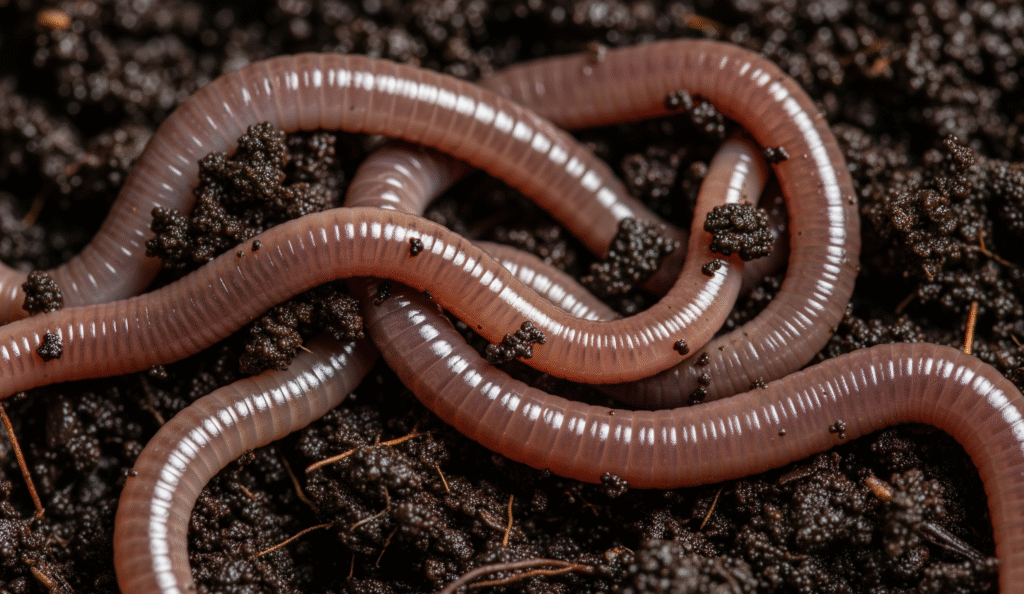Hello, fellow urban green-thumbers and eco-conscious apartment dwellers! If you’re passionate about reducing waste and nourishing your plants but think composting is off-limits in a compact living space, we’ve got some fantastic news. Welcome to SmallSpaceGardenPro.com, your go-to resource for making big gardening dreams happen in small places! Today, we’re tackling a topic that’s often misunderstood but incredibly rewarding: Odor-Free Apartment Composting.
Many city residents cringe at the thought of composting indoors, imagining foul smells and unwelcome pests. But what if we told you that with the right knowledge and techniques, you can transform your kitchen scraps into valuable “black gold” without turning your home into a stinky science experiment? It’s not only possible but easier than you think! This comprehensive guide will walk you through everything you need to know to successfully (and smell-free-ly!) compost in your apartment, balcony, or small urban backyard. Let’s dive in and unlock the secrets to successful odor-free apartment composting.
Why Bother with Apartment Composting? The Surprising Perks!
Before we get into the nitty-gritty, let’s explore why odor-free apartment composting is worth the small effort it requires. The benefits extend far beyond just reducing your household trash.
- Dramatically Reduce Household Waste: Food scraps can make up a significant portion of your weekly garbage. Composting them means less going to landfills…
- Create Nutrient-Rich Soil Amendment: Homemade compost is a powerhouse of nutrients for your houseplants, balcony garden, or container vegetables…
- Save Money on Fertilizers: Why buy commercial fertilizers when you can create a superior, organic alternative…
- Connect with the Natural Cycle: Even in a high-rise apartment, composting allows you to participate in the natural cycle…
- Educational for All Ages: If you have kids, apartment composting can be a fantastic hands-on learning experience…
- Reduce Your Carbon Footprint: By diverting waste from landfills and reducing the need for commercially produced fertilizers…
The ABCs of Composting: Understanding Greens, Browns, and Balance for Odor Control
The secret to successful and odor-free apartment composting lies in understanding the basic science. Composting relies on microorganisms (bacteria, fungi) to break down organic materials. These tiny workers need a balanced diet, primarily consisting of “greens” and “browns.”
“Greens” (Nitrogen-Rich Materials):
These are generally moist materials that provide nitrogen… Think of them as the “go” ingredients.
- Examples for apartment composting: Fruit and vegetable scraps (peels, cores, trimmings), coffee grounds and paper filters, tea bags (staples removed), fresh grass clippings (if you have access to a tiny patch), plant trimmings from houseplants.
“Browns” (Carbon-Rich Materials):
These are typically dry materials that provide carbon… Think of them as the “slow” ingredients.
- Examples for apartment composting: Shredded newspaper (black and white ink only), torn-up cardboard (non-glossy, like toilet paper rolls or cereal boxes), dried leaves (if you can collect some from a park or balcony plants), sawdust (from untreated wood), paper egg cartons, or even natural fiber dryer lint (in small amounts).
The Golden Ratio (Approximately): A common guideline for traditional composting is a ratio of 2:1 or 3:1 browns to greens by volume… leaning a bit heavier on the browns can be beneficial.
Why Balance Matters for Odor Control: An imbalance… is the primary cause of foul odors in compost. Getting this balance right is your first line of defense against unwanted smells.
Choosing Your Weapon: Odor-Free Apartment Composting Systems
Several composting methods are well-suited for apartments and small spaces, each designed to minimize odors and maximize efficiency. Here are the top contenders:
1. Bokashi Composting: The Fermentation Powerhouse
How it Works: Bokashi isn’t true composting in the traditional sense; it’s an anaerobic fermentation process…
Odor Factor: Very low. The airtight bucket contains any smells…
Space Requirement: Minimal. A Bokashi bucket is typically the size of a small kitchen trash can…
Pros:
- Processes all food scraps, including meat, dairy, and oily foods.
- Very fast initial processing (fermentation takes about 2 weeks).
- Produces a nutrient-rich “tea” that can be diluted and used as a liquid fertilizer.
- Minimal odor when managed correctly.
Cons:
- The end product is fermented, not fully decomposed… needs to be buried in soil…
- Requires ongoing purchase of Bokashi bran.
Ideal for: Apartment dwellers who want to process all food waste and have a way to bury the fermented product…

2. Vermicomposting (Worm Composting): Nature’s Recyclers
How it Works: Red wiggler worms (Eisenia fetida) are the stars here… transforming them into nutrient-rich castings (worm poop!).
Odor Factor: Very low to none when properly managed. A healthy worm bin should smell earthy…
Space Requirement: Compact. Worm bins can be small enough to fit under a sink…
Pros:
- Produces some of the best compost (castings) available.
- Engaging and educational.
- Can be done indoors year-round.
Cons:
- Worms are living creatures and require some care…
- Cannot process meat, dairy, oily foods, or citrus in large quantities.
- Some people are squeamish about worms.
Ideal for: Those who primarily have fruit and vegetable scraps… It’s excellent for odor-free apartment composting when rules are followed.
3. Electric Composters / Food Recyclers: The High-Tech Solution
How it Works: These countertop appliances use heat, grinding, and sometimes desiccation to rapidly break down food scraps…
Odor Factor: Generally very low, as most units have carbon filters…
Space Requirement: Countertop-sized, similar to a bread maker…
Pros:
- Extremely fast processing (hours instead of weeks or months).
- Can handle most food scraps, often including meat and dairy…
- Produces a dry, easy-to-store output.
- Minimal effort required.
Cons:
- The most expensive option.
- Uses electricity.
- The end product is more of a “dried food biomass” than traditional compost…
Ideal for: Those with a larger budget who prioritize speed, convenience…
4. Community Composting / Drop-Off Programs
How it Works: Not strictly “at-home” composting, but a vital option for apartment dwellers… You collect your scraps at home and take them to the site.
Odor Factor (at home): Manageable. You’ll need an airtight container to store scraps…
Space Requirement (at home): Just a small collection caddy.
Pros:
- No direct composting effort or space needed at home beyond scrap collection.
- Often accepts a wider range of materials than home systems.
- Supports local green initiatives.
Cons:
- Requires traveling to a drop-off site.
- You don’t get the finished compost back (usually).
Ideal for: Individuals who lack the space, time, or inclination for home composting… This can be a great supplement to any odor-free apartment composting method…
Setting Up Your System: A Quick Start for Bokashi
Let’s say you’ve opted for Bokashi, a popular choice for odor-free apartment composting. Here’s a simplified setup:
- Get Your Gear: You’ll need at least one Bokashi bucket… You’ll also need Bokashi bran.
- Prepare the Bucket: Ensure the bucket is clean…
- Add Your Scraps: Chop larger food scraps into smaller pieces…
- Sprinkle with Bran: For every inch or so of food scraps, add a tablespoon or two of Bokashi bran…
- Compress: Press down firmly on the scraps… This removes air pockets…
- Seal Tightly: Close the lid securely…
- Drain the Tea: Every 1-2 days, open the spigot and drain any accumulated liquid…
- Repeat: Continue adding scraps, bran, and compressing until the bucket is full.
- Ferment: Once full, seal the bucket and leave it to ferment for at least two weeks…
- The Next Step: After fermentation, the contents (now called “pre-compost”) need to be buried in soil…
What You CAN and CANNOT Compost (Especially for Odor Control & Worms)
This is critical for odor-free apartment composting, especially for vermicomposting.
Generally YES for most apartment systems (especially worm bins & traditional methods):
- Fruit and vegetable scraps (peels, cores, ends)
- Coffee grounds and paper filters
- Tea bags (remove staples)
- Crushed eggshells (good for adding calcium)
- Stale bread, grains, pasta (in moderation, can attract pests if overdone)
- Houseplant trimmings
Generally NO (or use with extreme caution) for worm bins & many indoor systems due to odor/pest risk:
- Meat, fish, and bones (Bokashi and some electric composters can handle these)
- Dairy products (cheese, yogurt, butter) (Bokashi and some electric composters can handle these)
- Oily/greasy foods (salad dressings, fried foods)
- Pet waste (dog or cat feces can contain pathogens)
- Diseased plants or pest-infested plant matter
- Chemically treated wood or glossy paper
- Large amounts of citrus (can be too acidic for worms)
- Onions and garlic (in large amounts can deter worms)
Always check the specific guidelines for your chosen composting system!
Mastering Odor Control: Pro Tips for Smell-Free Apartment Composting
This is where the “odor-free” promise comes to life!
- Maintain the Green/Brown Balance: As discussed, this is paramount…
- Bury Your Food Scraps: In worm bins, always bury new food scraps under a few inches of bedding…
- Chop Scraps Small: Smaller pieces break down faster…
- Aerate (for aerobic systems): If your system is aerobic… ensure it gets enough air…
- Manage Moisture: Compost should be moist like a wrung-out sponge…
- Keep Lids Secure: For systems like Bokashi or worm bins, ensure lids are well-fitting.
- Use Carbon Filters: Some commercial bins… come with carbon filters…
- Freeze Your Scraps (Optional): If you only add scraps to your composter once a week, freezing them…
- A Pinch of Garden Soil or Finished Compost: Adding a scoop of healthy garden soil…
Troubleshooting Common Apartment Composting Conundrums
-
Problem: Bad Odors (Rotten Eggs, Ammonia)
Cause: Likely too wet, too many greens, or lack of air (anaerobic conditions).
Solution: Add more browns (shredded paper, cardboard). Fluff up the compost to aerate… -
Problem: Fruit Flies
Cause: Exposed food scraps.
Solution: Always bury food scraps well under bedding in a worm bin. Keep lids secure… -
Problem: Compost is Too Dry
Cause: Not enough moisture, too many browns.
Solution: Lightly spray with water or add more moist green materials. -
Problem: Worms Trying to Escape (Vermicomposting)
Cause: Conditions in the bin are unfavorable…
Solution: Assess the conditions. Adjust bedding, moisture, or food…
Using Your Precious Black Gold (Even Without a Yard!)
Congratulations, you’ve made compost! Now what?
- Houseplants: Mix compost into potting soil when repotting, or use it as a top dressing…
- Balcony Gardens: Amend the soil in your container pots for vegetables, flowers, or herbs.
- Seed Starting Mix: Sifted compost makes an excellent addition to seed starting mixes.
- Compost Tea: Steep some finished compost in water, strain it, and use the liquid to water your plants…
- Give it Away: Offer your high-quality compost to friends with gardens, community gardens…
Frequently Asked Questions (FAQ) about Odor-Free Apartment Composting
If you choose an appropriate system… and follow best practices… your apartment should not smell bad. Healthy compost smells earthy, not rotten.
A small worm bin (some are shoebox-sized) or a single Bokashi bucket are very compact…
Only with specific systems designed for it, like Bokashi or some high-end electric composters…
Bokashi: Fermentation takes ~2 weeks, then several more weeks to fully decompose once buried…
Absolutely! The primary benefit is diverting waste from landfills. You can always donate your finished compost…
Your Journey to Sustainable Apartment Living Starts Now!
Odor-free apartment composting is more than just a gardening technique; it’s a lifestyle choice that empowers you to make a tangible positive impact on the environment, even from the confines of a small urban dwelling. By understanding the basics, choosing the right system, and diligently managing the process, you can successfully create nutrient-rich compost without any offensive smells.
Take the plunge! Start small, learn as you go, and soon you’ll be reaping the rewards of your own “black gold.”
We want to hear from you! Have you tried apartment composting? What are your biggest challenges or best tips for keeping it odor-free? Share your experiences and questions in the comments below. Don’t forget to subscribe to SmallSpaceGardenPro.com for more tips on thriving in your compact garden!


Leave a Reply